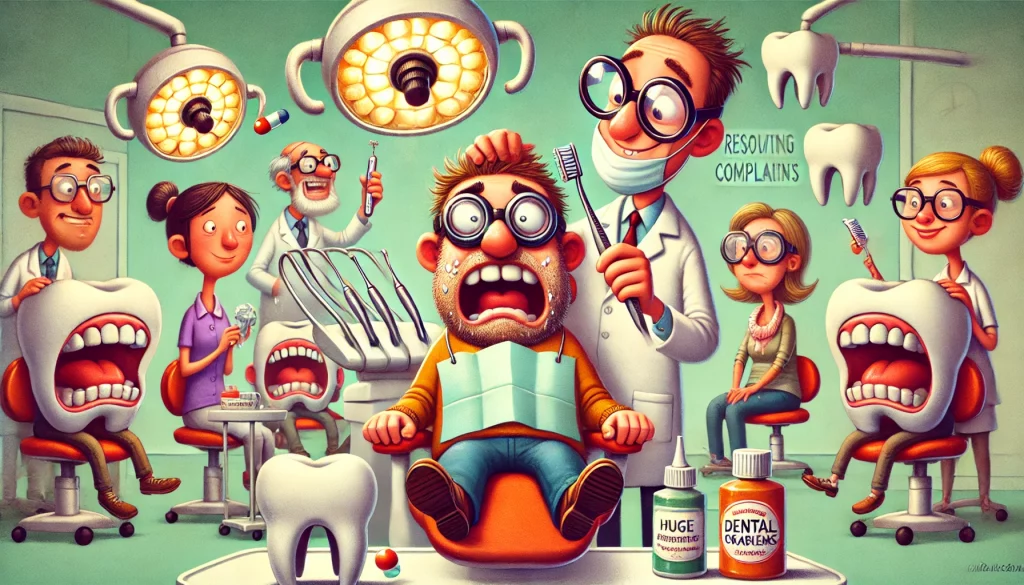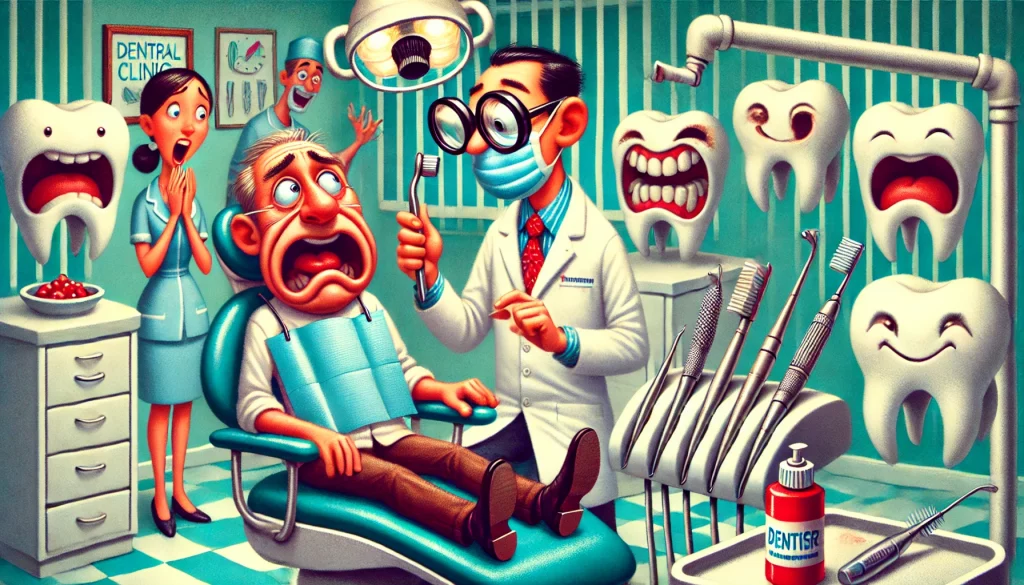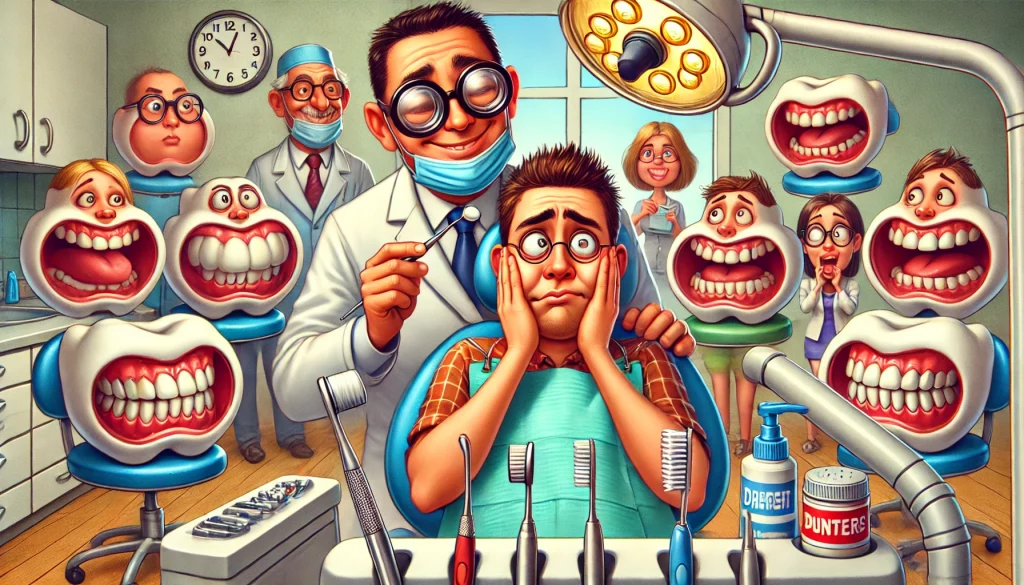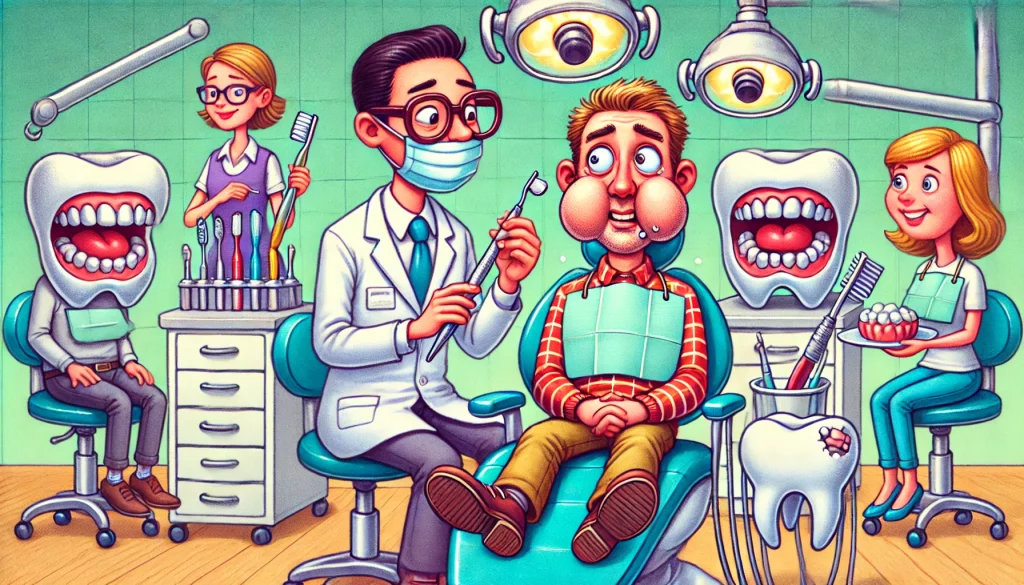Dental complaints: Resolve these common issues effectively

As a dentist, ensuring every patient has a great experience is a priority. However, it’s impossible to please everyone. Negative feedback and dental complaints from dissatisfied patients are inevitable.
These patients might escalate the issue by writing a negative review of your practice, potentially harming your online reputation. However, such complaints about dentists are preventable. This article covers the most common dental complaints and how to resolve them.
Importance of addressing dental complaints
Addressing dental complaints effectively is crucial for several reasons:
Maintain a positive reputation: Unresolved complaints: can lead to negative reviews, which can harm your practice’s reputation. According to a 2023 survey by BrightLocal, 87% of consumers read online reviews for local businesses, including dental practices.
Building patient trust: by proactively handling complaints shows patients that you care about their experience and are committed to quality care. A study by the Journal of Dental Research in 2022 found that 72% of patients who had their complaints addressed felt more trust in their dentist.
Improving patient retention: as satisfied patients are more likely to return and recommend your practice to others. Data from the American Dental Association (ADA) in 2023 shows that 81% of patients are likely to recommend their dentist if their issues are resolved promptly.
Enhancing service quality: since addressing complaints can provide valuable feedback, helping you improve your services. According to the ADA, 68% of dental practices that actively seek and respond to patient feedback report improved service quality.
Legal protection: because properly handling complaints can prevent legal issues that might arise from dissatisfied patients. The American Academy of General Dentistry (AAGD) notes that 15% of dental malpractice claims could be avoided with better communication and complaint resolution.

Common types of dental complaints and how to solve them
Patients may encounter various complaints or concerns related to dental care. These issues can range from pain and discomfort during procedures to dissatisfaction with the results.
Here are five common types of dental complaints and their practical solutions.
The treatment was too expensive
Cost is a significant concern for many individuals seeking dental care. Dental treatments can be expensive, making it challenging for some patients to access the necessary care.
Many patients visit dentist review sites to complain about the high cost of treatment at your dental clinic. While some patients understand that great dental treatment comes at a price, others might not.
Explain the cost upfront: Detail the cost of the treatment before starting to avoid complaints later. If additional procedures are needed, explain their costs and benefits upfront.
A study by the Journal of Dental Economics in 2022 found that 60% of patient complaints about costs could be mitigated with upfront communication.
Offer flexible payment options: Provide various payment options to help patients manage the cost. This can include payment plans or financing options to make treatments more affordable.
According to the National Association of Dental Plans (NADP), practices offering flexible payment options see a 35% increase in patient satisfaction.
Long wait time
Patients come to your practice to quickly resolve their issues. They will not be pleased if they wait too long. If the wait is beyond a few minutes, they may even write a negative review.
Schedule appointments efficiently: Ask patients to schedule appointments to manage time better. This helps in reducing wait times and allows for adequate buffer time between appointments.
The ADA reports that practices with efficient scheduling reduce wait times by 20% on average.
Communicate expected wait times: Proactively inform patients that their appointment time is tentative and can vary slightly. Keeping patients informed can reduce frustration and manage expectations.
A 2023 study by Dental Practice Management found that patient satisfaction increased by 25% when wait times were communicated effectively.
Lack of information
Many patients complain about dentists not providing enough information or explanations about their oral health conditions and treatment options. Feeling uninformed can lead to confusion and uncertainty.
Provide detailed explanations: Discuss the treatment in detail and explain all possible consequences. This helps patients understand what to expect and reduces confusion. The
Journal of Patient Experience reported in 2022 that detailed explanations reduced patient anxiety by 30%.
Give post-treatment care instructions: Provide comprehensive post-treatment care instructions. Ensuring patients know how to care for themselves after treatment can improve outcomes and satisfaction.
According to the ADA, 75% of patients who received detailed post-treatment care instructions had better recovery outcomes.
Not actively listening to the patient’s issues
While you might understand the problem by listening to a few symptoms, not listening to your patient completely can make them feel that you don’t truly care about their health issue.
Listen attentively: Listen to your patient sympathetically before suggesting a procedure. This ensures patients feel heard and understood.
Research by the Journal of Dental Practice in 2023 found that active listening increased patient trust by 40%.
Communicate openly: Highlight all the benefits and risks associated with the treatment they’ll undergo. Open communication builds trust and reduces anxiety.
The ADA notes that open communication can reduce patient anxiety by 35%.
Inappropriate behavior
Patients come to your practice with a problem that might have been bothering them for days or even weeks. Some patients might still be calm, while others might be slightly irritated. Either way, they expect you and your staff to treat them politely.
Maintain professionalism: Handle all patient interactions professionally. Politeness and a positive tone can defuse tense situations.
A study by the American Journal of Dentistry in 2022 found that professionalism in dental practices led to a 25% decrease in patient complaints.
Address complaints promptly: Addressing complaints quickly and effectively can prevent negative reviews. Satisfied patients are more likely to leave positive feedback online.
BrightLocal’s 2023 survey indicated that 70% of patients will leave a positive review if their complaint is resolved promptly.

Additional strategies for improving patient satisfaction
Continuous staff training: Ensure that your staff is well-trained in customer service. Regular training sessions can help maintain high standards of patient care.
The ADA reports that ongoing staff training improves patient satisfaction by 22%.
Feedback collection and analysis: Regularly collect feedback from patients to understand their concerns. Use this feedback to make necessary improvements in your practice.
According to the Journal of Dental Research, practices that actively seek patient feedback see a 30% improvement in service quality.
Create a welcoming environment: Make your dental clinic a comfortable and welcoming place. A pleasant environment can significantly enhance the patient experience.
The ADA found that 80% of patients feel more comfortable and are likely to return if the clinic has a welcoming environment.

Expert opinions on dental complaints
Dr. Laura Peterson, DDS, SmileCare Clinics: “Dental caries are common, affecting 92% of adults. Regular check-ups and proper oral hygiene, including fluoride treatments and dental sealants, significantly reduce cavity incidence.”
Dr. Michael Harris, DMD, HealthyGums Initiative: “Periodontal disease affects half of adults over 30. Early detection through routine screenings and patient education on proper oral care and risks of smoking are crucial.”
Dr. Emily Rogers, BDS, BrightSmiles Aesthetic Dentistry: “Cosmetic complaints, like teeth discoloration and misalignment, are common. Treatments such as teeth whitening, veneers, and Invisalign help address these issues, ensuring patients are informed about procedures and aftercare for better satisfaction.”

 7 min
7 min 






